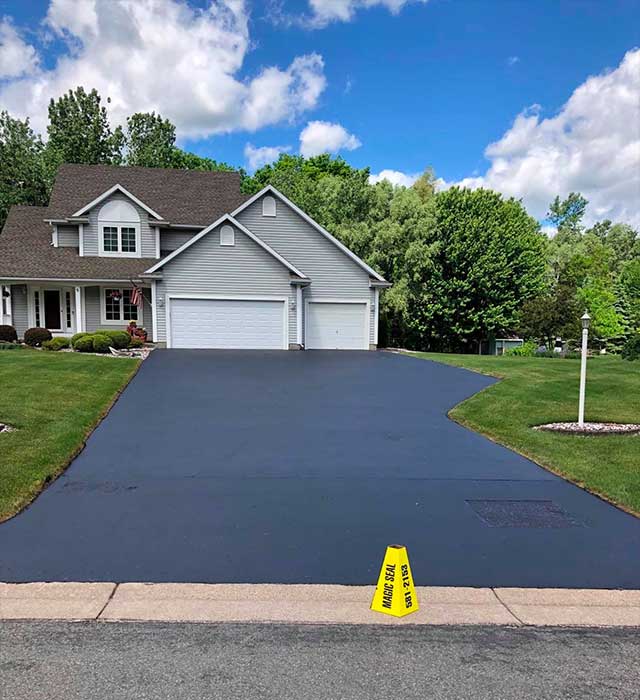Cold Mix Asphalt Vs. Hot Mix Asphalt: Which Is Right for You?

Make-up Differences
Cold mix asphalt is generated by emulsifying the asphalt binder with water and an emulsifying representative prior to blending it with accumulation. The warm mix asphalt manufacturing procedure entails warming the accumulation and asphalt binder independently prior to incorporating them at the asphalt plant.
Furthermore, cold mix asphalt tends to be less dense and a lot more versatile than hot mix asphalt. This versatility makes it much better fit for areas with higher degrees of activity, such as driveways or roadways with rush hour. In comparison, warm mix asphalt is understood for its high durability and resistance to rutting and cracking, making it a preferred choice for freeways and high-traffic roadways where long life is critical.
Installation Refine Differences
The procedure of setting up chilly mix and warm mix asphalt shows notable variances in their requirements and treatments. Cold mix asphalt, being an extra flexible material, can be used straight from the bag or container onto the crater or damaged location. It needs marginal preparation work, such as cleaning up the location and condensing the cold blend with hand devices. This makes it a hassle-free choice for short-lived and quick fixes. In comparison, hot mix asphalt demands a much more elaborate installment process. It entails heating up the mixture to high temperature levels before laying it down on an effectively prepared base. The prep work includes condensing the base, applying a tack coat, and making use of heavy equipment like pavers and compactors for a durable and smooth surface. Due to the heating needs, hot mix asphalt installments are usually executed by experts with customized devices, making certain a more structurally sound and irreversible result.
Toughness and Long Life Factors
When considering asphalt options, sturdiness and durability are critical variables to evaluate for lasting pavement performance. Hot mix asphalt (HMA) is known for its extraordinary toughness and durability. The heats throughout the mixing and laying process enable far better compaction, causing a denser and more powerful pavement structure. This brings about HMA being extra immune to rush hour loads, rough climate condition, and the impacts old compared to cold mix asphalt (CMA)
In terms of longevity, HMA commonly outshines CMA because of its premium strength and resistance residential properties. HMA pavements have a longer service life, needing less frequent repair services and maintenance, which can convert to cost savings in the lengthy run. Additionally, HMA sidewalks are more quickly customizable to satisfy specific job requirements, additionally enhancing their toughness.
Cost Factors To Consider
Considering the monetary effects is a vital facet when assessing the selection between hot mix asphalt (HMA) and chilly mix asphalt (CMA) for sidewalk projects. While the preliminary price of hot mix asphalt is usually more than that of cold mix asphalt, HMA typically gives a more affordable option over time because of its remarkable durability and longevity. HMA is understood for its capability to hold up against heavy traffic tons and rough weather, decreasing the requirement for regular fixings and upkeep. On like it the other hand, chilly mix asphalt is a lot more inexpensive in advance yet might call for even more constant patching and resurfacing, bring about greater upkeep prices with time.
In addition to product costs, it's crucial to think about the expenses linked with installation and upkeep when comparing HMA and CMA. Eventually, the decision in between HMA and CMA need to take right into account not simply the initial price yet also the long-lasting monetary effects to establish the most affordable alternative for the specific sidewalk task.
Environmental Impact Comparison
Contrast of the ecological influences in between warm mix asphalt (HMA) and cool mix asphalt (CMA) discloses distinctive differences in sustainability practices. HMA production requires high temperatures, leading to enhanced energy consumption and greenhouse gas emissions.
Additionally, the use of CMA often entails recycling existing asphalt sidewalk, promoting source preservation and decreasing the quantity of waste sent to landfills. By deciding for CMA over HMA, road building and construction jobs can contribute favorably to environmental preservation efforts.
Conclusion
To conclude, the selection between cool mix asphalt (CMA) and hot mix asphalt (HMA) relies on various variables such as composition, installment process, longevity, long life, cost, and environmental influence. angle parking. While CMA uses a quick and affordable remedy for minor repair services, HMA makes certain exceptional toughness and longevity for rush hour areas. Think about these aspects thoroughly to identify which sort of asphalt is browse around this site the right choice for your paving needs

Considering the economic implications is a vital aspect when examining the selection between hot mix asphalt (HMA) and cool mix asphalt (CMA) for pavement projects. While the preliminary price of hot mix asphalt is normally greater than that of cold mix asphalt, HMA typically gives a more cost-effective Click This Link solution in the long run due to its premium resilience and durability. asphalt repair.Comparison of the environmental effects between warm mix asphalt (HMA) and cool mix asphalt (CMA) discloses distinct differences in sustainability methods.In final thought, the option in between cool mix asphalt (CMA) and warm mix asphalt (HMA) depends on numerous factors such as composition, setup process, sturdiness, long life, price, and ecological influence